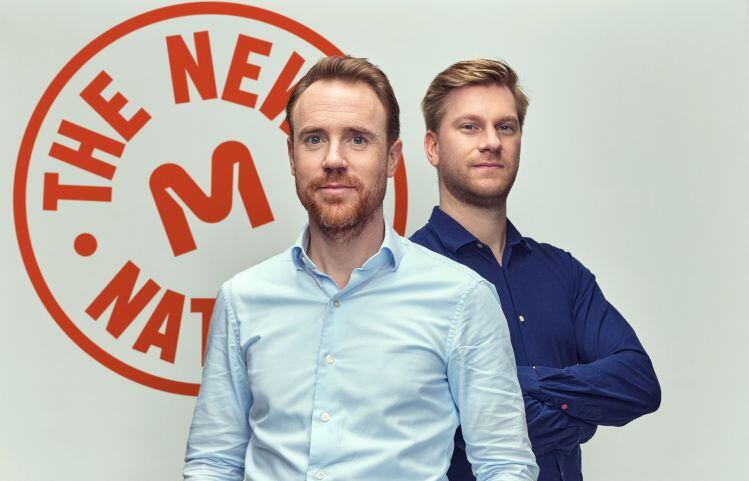Investors in the latest round include DSM Venturing, Dr. Rick Klausner (former director of the US National Cancer Institute), Section 32, and Dr. Jeffrey Leiden, and includes existing investors such as BlueYard Capital, Agronomics, Humboldt, and Taavet Hinrikus.
Meatable, which said last year that it had “made good progress on reducing dependency on expensive growth factors,” is effectively reprogramming Hematopoietic stem cells (HSCs) so that they turn into [induced] pluripotent stem cells (iPS cells) or ‘master cells’ that can differentiate into multiple cells types such as muscle and fat, and proliferate indefinitely.
'We are exploring different scaffold materials'
Speaking to FoodNavigator-USA this week, CEO Krijn de Nood said: "Last year we finally proved that we can grow pork using our opti-ox technology on a porcine pluripotent cell. For the first time in history, we have successfully differentiated pluripotent cells into fat and muscle with unprecedented speed and efficiency.
"Right now, we are growing these cells separately and have promising results as we are working towards a process that allows us to grow fat and muscle together. To make the whole muscle tissue that we are aiming for, we are exploring different scaffold materials that are suitable for the quality and scale of our process.
"This is quite unique of our technology, by using pluripotent cells we can grow them in the same environment to have a product that is 100% real delicious meat."
The plan is to have a small-scale production facility operating by the end of this year, with its first product approved by European regulators in 2023, and to "have our products widely available in stores" by 2025.
"With this new funding we believe we are well on our way to bringing our first products to market to sustainably satisfy the world’s appetite for natural meat... We see Europe, US and Asia – especially Singapore – all as promising markets."
'To make an impact climate-wise, we need to hit cost parity'
Asked whether he agreed with a recent analysis by Dutch consultancy CE Delft predicting that cell-cultured meat could get to price parity with some forms of conventional meat within a decade, he said: "We agree on most points and we are working on those. But another thing to note is that one could argue that at the moment we don’t really pay the true cost of meat.
"Looking at climate change, and the need and urgency felt globally to make a change, one could argue that the true cost of meat needs to go up, right? And this ties in neatly with the first answer above. To make an impact climate-wise, we need to hit cost parity. With the expectancy of traditional meat prices going up, we might hit price parity with our cultivated meat even sooner."
Despite the hype, most startups in the cell cultured (a.k.a. cell-based, cultivated) meat space are still working in a laboratory (as opposed to a factory), although several have now raised more substantial sums (Memphis Meats, Mosa Meat, BlueNalu, Future Meat Technologies, Aleph Farms, Wild Type) to build pilot-scale facilities.
Silicon Valley-based Eat Just, meanwhile, recently hit the headlines after launching chicken bites containing a combination of cell-cultured chicken and plant-based proteins in Singapore under the GOOD Meat brand.
Cell-cultured meat could be cost competitive with some forms of conventional meat within a decade, according to two new studies from Dutch consultancy CE Delft using data from 16 companies* active in the field including five startups, although the authors acknowledge that data gaps exist and assumptions will change as the industry matures. Read more HERE.

